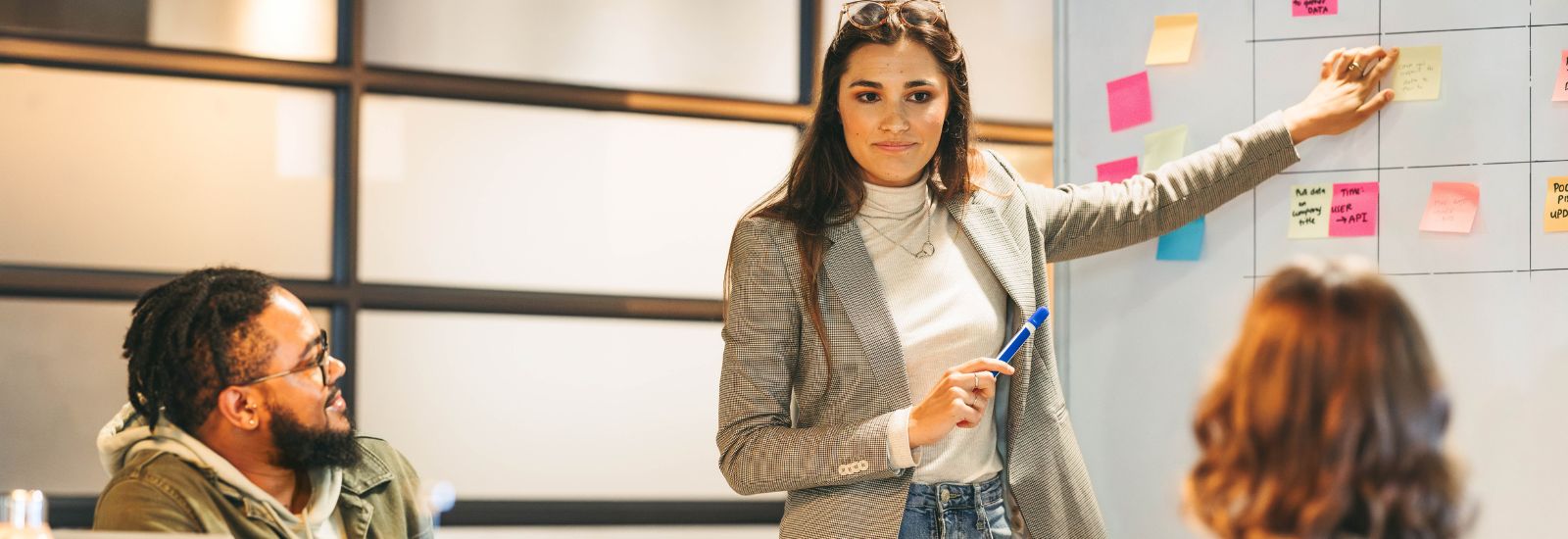The University of Reading is proud of its long-running participation in YES [Your Entrepreneurs Scheme] – an innovative global competition developed to raise awareness among postgraduate students and researchers as to how research can be commercialised.
Now in its 28th year, the YES competition brings teams together to develop a business plan for a start-up company based on a hypothetical, but plausible, idea that attempts to deploy novel science and engineering to address societal challenges.
Read on to discover the stories of five Reading graduates who participated in YES and how the competition taught them valuable enterprise skills which have improved their career opportunities.
Dr Ahmad Abdullrahman
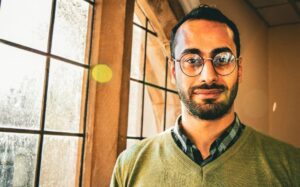 When Ahmad began his PhD in pharmaceutical chemistry at the University of Reading, he didn’t have a firm idea of what he wanted to do afterwards. During his second year, Ahmad’s supervisor suggested that participating in the YES competition might provide him with a valuable sense of professional direction. “At that stage, I didn’t know anything at all about the world of business,” said Ahmad. “But it sounded really interesting, so I thought, let’s do this!”
When Ahmad began his PhD in pharmaceutical chemistry at the University of Reading, he didn’t have a firm idea of what he wanted to do afterwards. During his second year, Ahmad’s supervisor suggested that participating in the YES competition might provide him with a valuable sense of professional direction. “At that stage, I didn’t know anything at all about the world of business,” said Ahmad. “But it sounded really interesting, so I thought, let’s do this!”
Ahmad soon found his feet as part of a team of researchers developing a hypothetical business idea. As he did, he realised that many of his natural strengths were well-aligned with entrepreneurship:
“Once I started, it became clear how running a business works – and I realised I enjoyed it!”
The skills and experience Ahmad gained during the YES competition led him directly into his current role as a Fellow on Innovate UK ICURe , a pre-accelerator programme designed to help researchers explore the commercial application and potential of their research.
He said: “Taking part in YES allowed me to appreciate for the first time the real impact of my research. It’s not just about getting a paper published – it’s about creating something that could change people’s lives.”
Claudia Aguguo
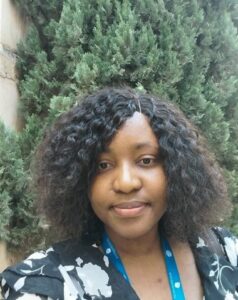 When Claudia first heard about the YES competition, she wasn’t sure it would be the right fit for her. “You don’t see a lot of entrepreneurs or people in the innovation sector who share my background,” she explained. “But I decided to go for it anyway, because I’ve learned to keep an open mind in life – after all, I never thought I’d be doing a PhD either!”
When Claudia first heard about the YES competition, she wasn’t sure it would be the right fit for her. “You don’t see a lot of entrepreneurs or people in the innovation sector who share my background,” she explained. “But I decided to go for it anyway, because I’ve learned to keep an open mind in life – after all, I never thought I’d be doing a PhD either!”
Claudia soon found herself immersed in the exciting world of entrepreneurship as part of a team of four postgraduate students from the University of Reading, developing a plan for a hypothetical business based on her PhD research.
The team was supported by staff at Reading’s Henley Business School through ongoing feedback and the delivery of supplementary sessions on all aspects of business planning. “It was really helpful to have so much extra support during the competition,” said Claudia.
“Being able to learn directly from experts and hear about real-life applications of the new skills we were learning was extremely valuable.”
To improve her confidence, Claudia also received personal support and encouragement from staff at Reading’s Knowledge Transfer Centre (KTC). This support inspired her to go on to help other PhD students at Reading, as “early career researchers today are more curious about business than they have been in previous generations.”
Now, Claudia is now part of the LifeArc-AUTM Technology Transfer Fellowship programme and is on her way to becoming a fully-fledged technology transfer specialist – a role in which she will be able to use her own experience to help other early career researchers to commercialise their research.
Dr Saumya Sood
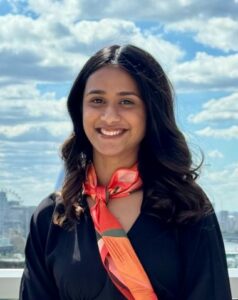 With a professional background in food and nutritional science in India, Saumya came to the University of Reading to study for a PhD to acquire the tools needed to apply her academic research to industry. It was halfway through her PhD that Saumya first heard about the YES competition.
With a professional background in food and nutritional science in India, Saumya came to the University of Reading to study for a PhD to acquire the tools needed to apply her academic research to industry. It was halfway through her PhD that Saumya first heard about the YES competition.
She explained: “While I’d previously worked in commercial settings, I’d always been on the science side of product development, so I had a limited understanding of how things like finance and marketing worked. I’m very interested in entrepreneurship, so the YES competition seemed a good opportunity to develop my business management skills.”
Saumya and her team were supported throughout the competition by staff at Reading’s Henley Business School and the KTC which Saumya described as “invaluable”. She said:
“Having direct access to in-house support and expertise around business planning and pitch development definitely gave us an advantage over the other teams in the competition.”
After taking part in YES, Saumya was able to apply her new business skills as an Associate for an Accelerated Knowledge Transfer Partnership between Reading and A&R House (BCL) Ltd, on a project designed to extract oil from fruit waste. She is now moving onto a full KTP Associate role with the University of Nottingham and Unilever, to work on a project exploring the sensory aspects of ice cream.
Dr Sawsan Khuri
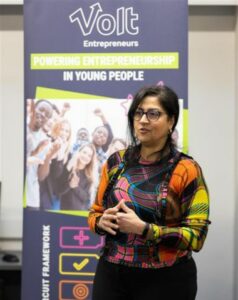 Sawsan took part in the first ever YES competition almost 30 years ago, as part of a team of five postgraduate and postdoctoral researchers from the University of Reading. “My academic supervisor at the time pulled me aside and said, ‘if you can get a good team together for this, you can win it,’” said Sawsan. “I’ve always enjoyed a challenge, so when exciting opportunities like this arise, I tend to grab them with both hands.”
Sawsan took part in the first ever YES competition almost 30 years ago, as part of a team of five postgraduate and postdoctoral researchers from the University of Reading. “My academic supervisor at the time pulled me aside and said, ‘if you can get a good team together for this, you can win it,’” said Sawsan. “I’ve always enjoyed a challenge, so when exciting opportunities like this arise, I tend to grab them with both hands.”
Sawsan, who studied Agricultural Botany at Reading, and her team went on to win the entire competition, including taking home four of the five top prizes. She said:
“I’ve always been confident, but how that confidence has been portrayed has changed over the years. Taking part in YES was a defining moment in my leadership journey, because it taught me the difference between being bossy and being a good leader.”
Today, Sawsan uses her experience to support the next generation of ambitious young people to develop their leadership skills, in her role as CEO of Volt Entrepreneurs. She also runs Collaborative Capacities, a consultancy firm comprising professional facilitators and innovation specialists talented in designing complex, cross-sector conversations.
She said: “The way I describe what I do now is that I create synergies and empower the young – I’m very passionate about helping young people to develop entrepreneurial skills, because they need these to succeed in life.”
Dr Stephanie Bull
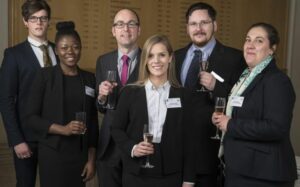 When Stephanie decided to take part in YES she was nearing the end of her PhD in food and nutritional sciences at the University of Reading, and was keen to explore opportunities outside of her area of expertise.
When Stephanie decided to take part in YES she was nearing the end of her PhD in food and nutritional sciences at the University of Reading, and was keen to explore opportunities outside of her area of expertise.
She said: “Professional training can often feel like a tick-box exercise, but the YES competition was different. It was offering an opportunity to develop highly transferable skills in a whole new area.
“The support we received from the KTC was fundamental – from bringing together the team and helping us get into the right mindset for the competition, to introducing us to some crucial business concepts and helping us come up with a viable idea,” she explained.
Stephanie and her team were also offered bespoke coaching by experts from Reading’s Henley Business School to help with various technical aspects of their business plan, including finance, intellectual property, and presentation – skills that have since proven to be very useful in her current role as a lecturer.
While Stephanie has remained in the world of academia, she now co-convenes an undergraduate module focused on bringing new products to market. This involves training her students in exactly the skills she herself learned through YES. She said:
“When you’re a student, it’s very easy to become so focused on your academic output that you forget there’s this huge wealth of expertise and training available to you at university – but these are fantastic opportunities for personal and professional growth.”

